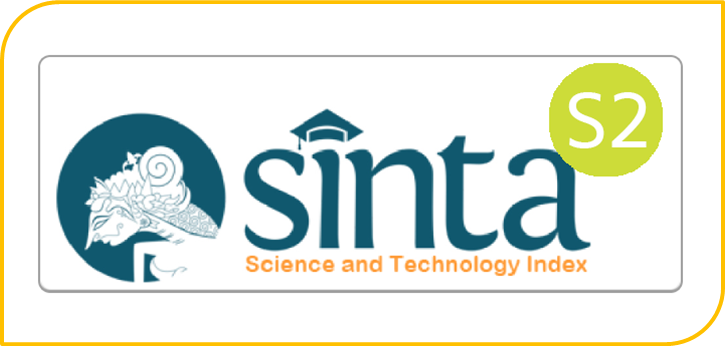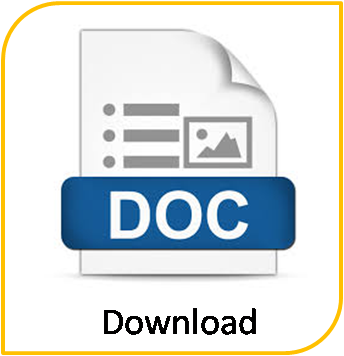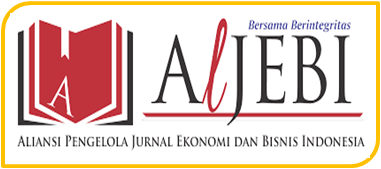DAMPAK PANDEMI COVID-19 TERHADAP PERTUMBUHAN DANA PIHAK KETIGA PADA BANK SYARIAH
Abstract
The aim of this study is to analyze the impact of contagious of Covid-19 on the growth of Third Party Funds (DPK) in Islamic banks, to see the economic strength during the Covid-19 Pandemic. The analysis was carried out on the financial statements of two Islamic banks, are BNI Syariah and Bank Syariah Mandiri (BSM). By using time series data analysis in the aggregate time of the first semester for the period of January - June and the first month in the second semester in July 2020. The data source is taken from the financial publication monthly report from BNI Syariah and BSM. As a comparison, data for 2018 and 2019 are used in the same month period, so that obtained of the growth trend of DPK in Islamic Bank during normal times and during the Covid-19 pandemic. The results of correlation and comparison analysis, this study found that the Covid-19 pandemic has influenced the trend of public funds in Islamic banks. In choosing fund products at banks, the customer avoid investment risks by reducing deposits in the form of investment funds and prefer Wadiah as safe products. This caused DPK in Islamic banks both BNI Syariah and BSM have significant positive growth for Wadiah and decline in investment funds during the Covid-19 pandemic. This shows that Islamic banking faces financial risks in abnormal situations during the Covid-19 pandemic.
Keywords
Full Text:
PDFReferences
Akkizidis, I., & Khandelwal, S. K. (2008). Financial Risk Management for Islamic Banking and Finance. In Financial Risk Management for Islamic Banking and Finance.
Al-Roubaie, A. (2010). Islamic banking and finance vol III: Current Islamic finance. Routledge.
Askari, H., Iqbal, Z., & Mirakhor, A. (2015). Introduction to Islamic Economics: Theory and Application. Wiley.
Bessis, J. (2002). Risk Management in Banking. John Wiley & Sons Ltdm.
Cranston, R. (2002). Principles of Banking Law. Second Edition. Oxford University Press.
Ginena, K. & Hamid, A. (2015). Foundations of Shari’ah Governance of Islamic Banks. John Wiley & Sons Ltdm.
JP Morgan Report. (2020). Monitoring the Global Impact of Covid-19. Market Bulletin.
Kabir Hassan, M., Lewis Professor of Banking, M. K., & Elgar, E. (2007). Handbook of Islamic Banking Elgar Original Reference. 460. https://www.kantakji.com/media/2129/b029.pdf
Liao, J. (2018). Research on the Influence of Third-Party Payments on the Business Operations of Commercial Banks. 236(Meess), 166–174.
Mansor, H. Ibrahim; Law, S. H. (2019). Financial Intermediation Costs In A Dual Banking System: The Role Of Islamic Banking. Bulletin of Monetary Economics and Banking, 22(4), 529–550.
Mardhiyaturrositaningsih; Mahfudz, M. S. (2020). Dampak Pandemi Covid-19 Terhadap Manajemen Industri Perbankan Syariah: Analisis Komparatif. Jurnal Ekonomi Dan Manajemen, 2(1).
Mohsin, M.I., & Dafterdar, H. (2016). Financing the Development of Old Waqf Properties: Classical Principles and Innovative Practices around the World. Palgrave Macmillan.
Nasution, A.F., & Irsad, R. (2019). Analysis of the Effect of Third Party Funds of Sharia Banking, Profit Sharing Financing, Murabahah Financing and Bank Indonesia Sharia Certificate on Inflation of Indonesia. International Journal of Research & Review, 113–120.
OJK. (2016). Metadata Statistik Perbankan Syariah. Departemen Perizinan Dan Informasi Perbankan, 1–68. www.ojk.go.id
OJK. (2018). Pedoman Penyusunan Laporan Bulanan Bank Pembiayaan Rakyat Syariah. Direktorat Perbankan Syariah, Bank Indonesia.
OJK. (2020a). Laporan Profil Industri Perbankan Triwulan Ii 2020. Ojk.
OJK. (2020b). Laporan Triwulan I, Januari – Maret 2020.
Porter, M. E. (1998). Competitive Advantage: Creating and Sustaining Superior Performance. Free Press.
Powell, J. H. (2020). Monetary Policy Report Januari 2020. The Federal Reserve (The Fed).
Putri, R. N. (2020). Indonesia dalam Menghadapi Pandemi Covid-19. Jurnal Ilmiah Universitas Batanghari Jambi, 20(2), 705.
Trad, N., Trabelsi, M. A., & Goux, J. F. (2017). Risk and profitability of Islamic banks: A religious deception or an alternative solution? European Research on Management and Business Economics, 23(1), 40–45.
Warde, I. (2014). Islamic finance in the global economy: Second edition. Islamic Finance in the Global Economy: Second Edition, 1–288.
World Health Organization. (2020). Coronavirus Disease 2019 (COVID-19). Ikhtisar Kegiatan. WHO Indonesia.
Yuliana. (2020). Corona virus diseases (Covid-19); Sebuah Tinjauan Literatur. Wellness and Healthy Magazine, 2(2), 187–192.
DOI: https://doi.org/10.18860/ed.v9i1.11431
Refbacks
- There are currently no refbacks.
Editorial Office:
Megawati Soekarnoputri Building
Faculty of Economics
E-mail: eldinar@uin-malang.ac.id
Universitas Islam Negeri Maulana Malik Ibrahim Malang
E-ISSN 2622-0083

El Dinar under a CC BY SA 4.0 International License.
Member of:
Indexed By:
















